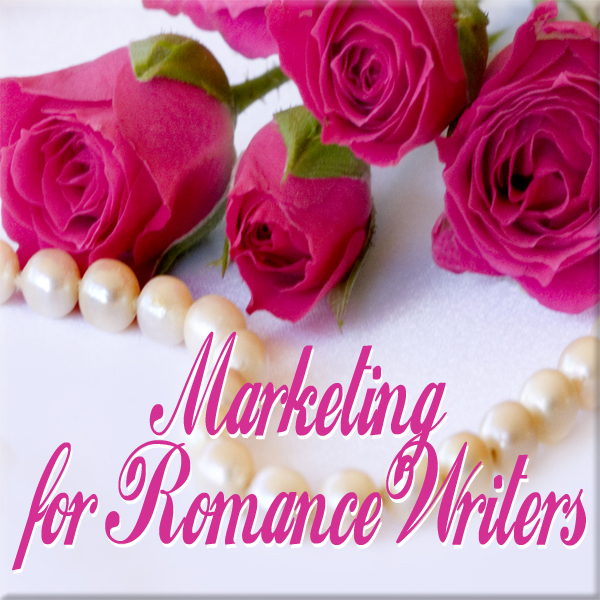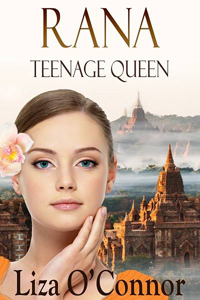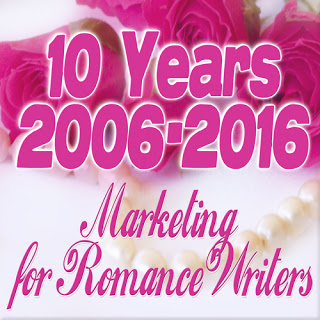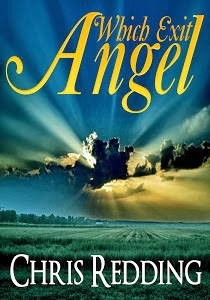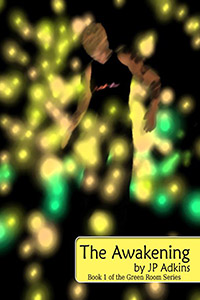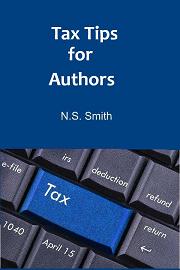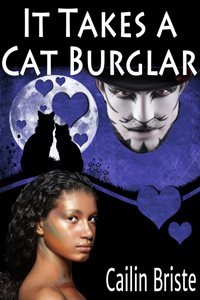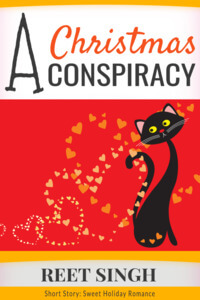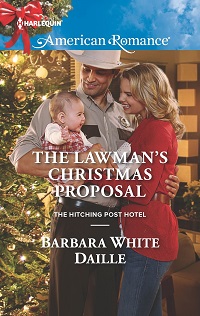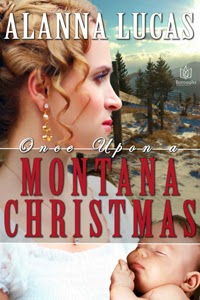-
5 Things Authors Miss on their Tax Returns @emlynley #RLFblog #taxes #authors
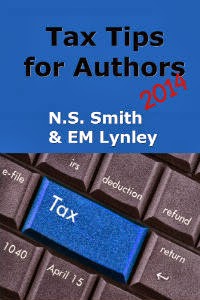
Tax Tips for Authors In my real life I’m a tax and finance professional and I’ve been
sharing my knowledge with other writers for the past three years. I find many people
have problems with the same issues year after year. Are you making these mistakes?
If so, you’ll find more ways to solve these problems (and more) in my book Tax Tips for Authors 2014. (Available from
Amazon, Barnes
and Noble, iTunes, Smashwords ARe/OmniLit
and in print)1. Calling your hobby
a business – or vice versaThe IRS has a pretty strict line between hobby and business,
because businesses get to write their losses off against other income (W-2 or investment
income) which lets them lower their taxes. To be considered a business you need
to have profits in 3 out of the past 5 years. It you’re having more years of losses
than profits, the IRS may want you to prove you’re a real business, which means
show that you are trying to make money. They look at the ratio of expenses to earnings
and the type of expenses you claim: advertising and other promo help you, but travel
to conventions may hurt you if you’re not earning enough to justify the expense.Businesses that claim to be a hobby are seen as avoiding self-employment
tax, so if you have increasing hobby income, the IRS may force you to file Schedule
C and pay SE tax. Make sure you classify your writing correctly.2. Not filing quarterly
estimated tax paymentsThis is one of the most confusing aspects of self-employment
and for authors it’s even more complicated: earnings and expenses fluctuate wildly
during the year. Some people just ignore it, then get both a big surprise balance
due in April, plus a penalty for not paying quarterly. There are ways to avoid this,
the easiest being to pay at least 110% of last year’s tax bill in quarterly installments.
If you overpay, you’ll get a refund, but you’ll definitely avoid a penalty. I go
over how to calculate the correct quarterly payments in my book, Tax Tips for Authors
2014.3. Paying too much self-employment
taxHow do you pay too much? By not taking all the deductions you
can, and by not keeping a careful running balance of profit and loss during the
year. You only pay SE tax when you have over $400 of profits, so if you can reduce
profits (by increasing legitimate spending during the tax year) you can save some
money. Make sure to do a tentative P and L calculation in early December. It may
make sense to register for expensive conventions then rather than waiting till January.
Buy a new computer or pre-pay for advertising. Shift only planned spending rather
than simply spending down your profits carelessly, so you can build your business
rather than just avoid taxes.4. Missing out on deductionsMost authors I work with don’t keep good records of their spending.
This includes mileage driven for “business.” Did you write down every
time you drove to the library, book store, airport, etc.? Get in the habit of writing
down your mileage and other expenses every day or two—before you forget—and you’ll
see how much more you are able to claim. Keep receipts for books, index cars, notebooks,
stock photos, domain names, lunch with your writing partner, swag, etc. This will
also help you keep a running P and L for filing quarterly payments and making good
year-end spending decisions. I have much more information on proper recordkeeping
and deductions in the book.5. Mixing business and
personal expensesAlong with the hobby/business issue, this is one of the things
IRS loves to investigate. The best way to keep everything separate—even for sole
proprietors—is to have separate bank accounts and debit or credit cards. It’s easy
to have a separate PayPal account just for your writing business, and you can get
a PayPal debit card. An Ally bank account is free and requires no minimum deposit
and they issue debit cards as well. Have all your payments made into the separate
accounts, and spend only from the business PayPal/Ally debit card. If you need to
use a credit card, ask for an additional card from your credit card company and
use the new one only for business. At the end of the year you can get a separate
statement of your business expenses, which makes recordkeeping and organizing deductions
a snap.Want even more information? Sign up for my Tax Tips Newsletter, or visit
the Tax Tips for Authors website. Best of all, pick up a copy of my book Tax Tips
for Authors 2014. It’s got new information for filing 2013 returns, a Schedule
C walkthrough, chapters on self-employment taxes and quarterly payments and a whole
lot more.Contest
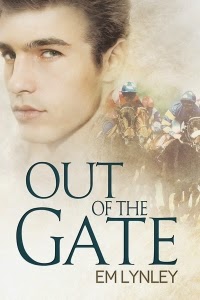
Out of the Gate Ask a tax question and be entered to win a free registration
to an author-oriented Tax Workshop held by EM Lynley.About the Author
EM Lynley is a former investment analyst and White House economist.
Now she writes gay erotic romance. She loves books where the hero gets the guy and
the loving is 11 on a scale of 10. Her Precious Gems series is best described as
“Indiana Jones meets Romancing the Stone”—only gayer. The Delectable series
is Gay Romance with Taste. Her books are available in print and e-book from Amazon
& other book distributors.Author Social Media
Website: http://emlynley.comBlog: http://emlynley.com/blogLiveJournal: http://emlynley.livejournal.comTwitter: http://twitter.com/emlynley -
Wanted: Romance Characters. Wounded Hero Apply Within @romancebysusan #RLFblog
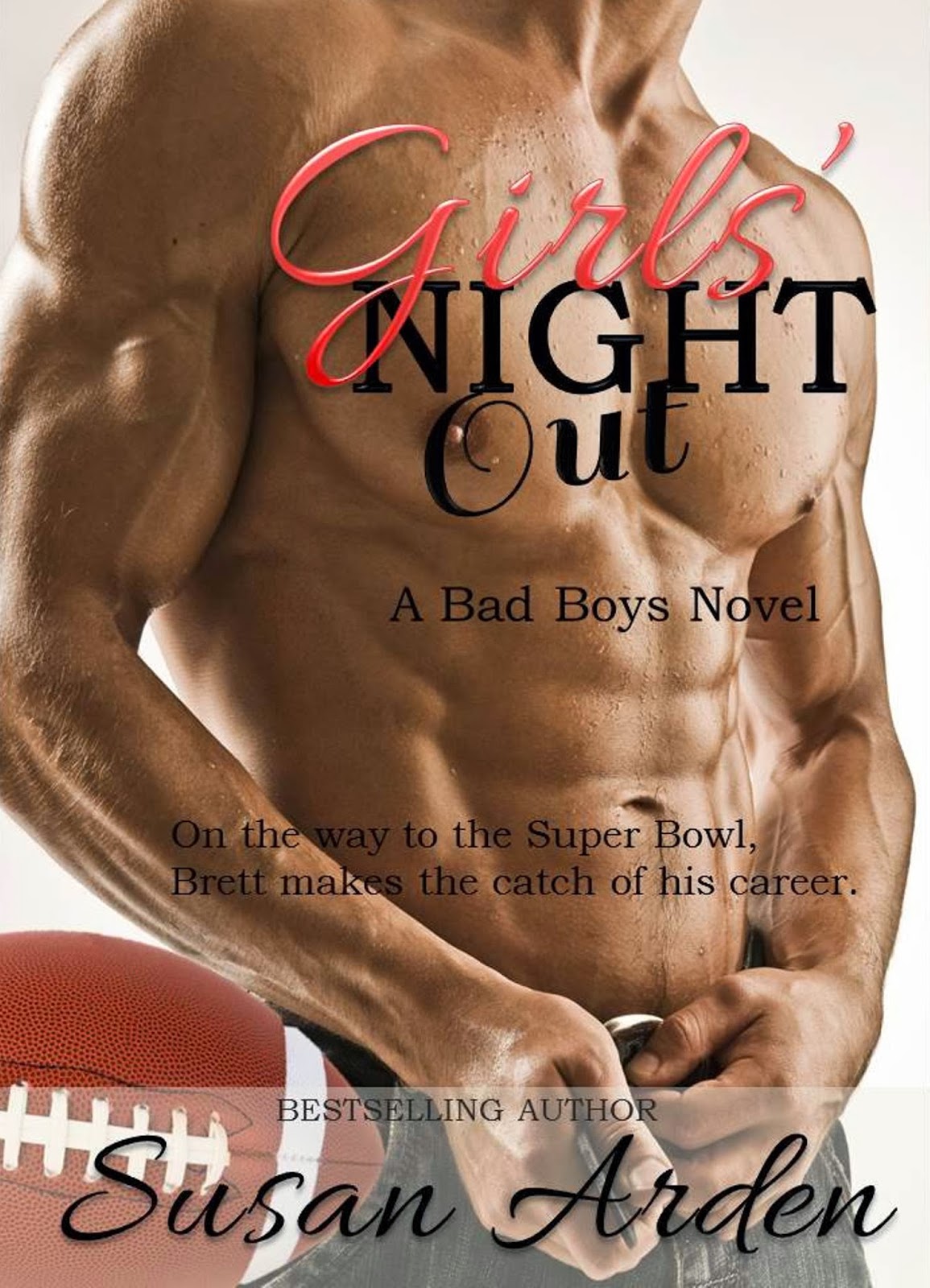
Girls’ Night Out Welcome to RLF! Today’s guest post is by Susan Arden / Susan D Taylor.
It’s business as usual in writing
scorching romance. I power up the computer, drum my fingers, and
inhale. Time to find “him” and “her.” How about this time I
hand over the reins to you to locate a pair of lovers? Would you start with
an open casting call in which you hang a sign: hot men and women need apply?Writing a romance requires that an
author open their heart and imagination in the creation of a pair of lovers. In
order for the lovers to exist within a story, I need a hook that gets me thinking…excited.
As a writer of nuclear heat-level romance, I begin with a visualization of a plot
line that begins in a physical spot. A church parking lot, a ranch, a stadium. Someplace
where two people might meet and fall in love. But that isn’t the place where the
story begins. It’s a trajectory point where I aim, more than likely a place about
sixty-percent of the way through the book where the characters hang out.Once I get a feel for where the characters
and I are headed, I throw open the doors and the casting call begins and that means
it’s time to dig deep into their lives. The expectation for romance stories is that
these contain people who have attributes such as beauty, wit, strength, charisma
as well as a host of other attractive characteristics that are displayed throughout
the story—sky is the limit. But alas, every author knows that in loving our creations,
we must do our writer duty in our creating reflections of humanity by making them
human. And as humans, our lovers must have flaws.So in writing, I draw from what I
know and as a past educator, I draw heavily on my education and classroom where
I had the honor and pleasure to spend my days with funny, energetic, sensitive,
stubborn students who were as varied the colors of the rainbow. But the one characteristic
they and I shared is we are learners…people who learn differently. I taught special
education and ironically have ADHD and facets of dyslexia. I understand what it
means to be reduced to a statistic and boxed into a category. Learners with special
needs require supports to actualize strengths to compensate for “things”
we don’t do so well. I can’t tell right from left, but instinctively know cardinal
direction regardless of where I’m at. I can do simple math like a calculator but
can’t understand high order math. I need to use a computer over pen and paper. I
read chunks of information but can’t read word for word. Numerical order and word
order are atypical or are repeated in the wrong order unless I close my eyes and
read from the picture in my mind.In this go round in Girls’ Night Out
(GNO), I wanted to have a character who reflected those I know. Brett Gold has dysgraphia,
a form of dyslexia, and this helped to balance out extreme strength. Brett became
the hero with a wound (i.e., wounded hero archetype) in which that “flaw”
would affect him starting at a very young age. The hero in GNO had the love of a
parent to help him have the confidence to keep striving rather than to become embittered.
His dyslexia would give him perspective, frustrating him at times, but widen his
horizon to understand the suffering of others. Like the saying goes; bamboo is strong
for it bends in the whipping wind where an oak may crack in a strong storm.So, in Girls’ Night Out the heroine, Cory
McLemore, is young and struggling to find her footing away from her over-protective
family when she encounters a man who seems to have the world by the tail. Brett
Gold, an NFL tight end isn’t the persona that he and the pro ball profession projects.
This is part sports romance and Western, and like any creature who bucks, there’s
a time for a heavy hand and there’s a time for giving some space, and that’s what
Brett does for Cory. There is spanking as this is an erotic romance and is utilized
by Brett with Cory in establishing structure. Yet Brett is more than the typical
alpha, he understands his lover’s need to find her authentic self where she requires
his support to allow her the opportunity to stretch her wings.In writing the strong, capable hero,
a flaw of a disability such as learning difference can humanize someone who otherwise
might come off more like a God than a good guy, sweet enough to bring home to meet
mom and dad.Namaste.Buy This Book
Girls’ Night Out ~ A Bad Boys novel (Book 4)Books Coming Soon
In Sweetest Curse, another type of disability is addressed: Undine’s
Curse. Stay tuned for that release coming in March 2014.Double Trouble ~ A Bad Boys novel (Book 5) March 2014 ReleaseLearning Disabilities
For more information on learning disabilities, please visit The
National Center for Learning Disabilities http://ncld.orgAuthor Social Media
-
13 Tips for Sharing Links @vickibatman #RLFblog #authortips
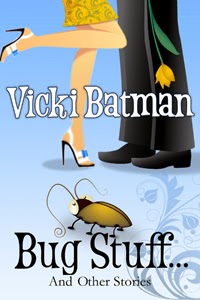
Bug Stuff… and Other Stories As
authors, we write or create something, and we want to share with the BIG WIDE WORLD.
But how?I’ve collected
a few tips to ease your way:1. In each blog, there should be buttons for Facebook, Twitter, Goggle+ and
more to click on. When you do, an automatically generated blurb appears. Use this! Send our happy camper to Facebook
(you can send to multiple pages, too). And remember
on Facebook to intrigue readers by beginning
your post with a question. That gets more visibility.Don’t forget
to use other buttons and forward our camper to Google+ , LinkedIn, Stumble Upon,
Twitter, and a whole variety of others.Author and
fellow Plotting Princess, Michelle Miles, recommends a Jetpack
plugin called “Publicize” to have it go out to Google+, Twitter, and Facebook
when it’s published.2. Copy your post with link on your Facebook page. In most cases, a picture
from the blog will appear as well–which makes your post more desirable. Again,
remember to begin the post with that all important question.On Facebook,
you can share on other pages you are
an administrator on. This is very desirable.
Click share, find pages you manage from
the drop down menu, click on the appropriate page, and post.3. Take that just posted text, which includes the link and copy, and paste
onto your writer group pages on Facebook. You
do belong to other groups—right? They want to know your good news, and in a
lot of cases, they might share the link with their friends. Sharing is a good thing.4. Do you belong to a Tribe in Triberr? Consider signing up and have your RSS
feed automatically networked (check Networked Blogs) to the tribes where your
mates will share the twitter post.5. Do you have a Twitter manager like Tweetdeck or Hootsuite? If so, create
an @mentionyourname column. You can edit and retweet your tweets throughout the
day. Easy peasy. Just avoid being spammy.Have you considered
setting up columns for your friends and other organizations? Do it! You can retweet from there, too.
And I’m betting a lot will reciprocate. And while we’re at it, try saying thank
you to a new follower or someone who tweeted your tweet. Nice is always appreciated.One note about tweets: try to
tie it to reader emotion. You want the reader to respond to your tweet. A generic tweet is ignored.6. Still using Yahoo groups? I do, and whenever I blog, I share the post and
the relevant link with those groups. After all, you do want some commentors!It does help
to begin your subject line with your name
and an intriguing title for your post.
Even a post ending in a question can hook someone. Be fun and playful.7. Create a tweet and ask your friends to tweet for you. Be sure to include
relevant hashtags ( # ). Just don’t overdo.8. Join a tweet group which posts daily tweets and retweets for each other.
And if you do, abide by the rules.For example: via @VickiBatman Hate to squish bugs? Bug Stuff
and other stories coming soon. http://vickibatman.blogspot.com #agroup
#amwriting #indie #ebook.Remember: 140 character limit. So you might want to sign up with Bitly (https://bitly.com/ ) and make that
link smaller, thus having more characters for the tweet.Aside: I just
tweaked the above tweet and added my Bug Stuff cover and it looks fantastic!!!9. Are you a member of Google+ ? It’s becoming the newest thang! In Google+
you group your friends. Alisha Paige, writer and Plotting Princess, says to remember
to use the Public button so your post
goes out to new friends.10. Are you on Goodreads? If so, your blog can be RSS fed to your page.11. Are you on Author Central? If so, your blog can be linked to your page.12. Lots of your sites will allow you to set up your twitter stream. Go to Unstoppable Heroes to see Kayelle Allen’s:
http://kayelleallen.com/blog/13. Join Marketing for Romance Writers and
use their street team. It’s free to members!The cyber
world changes constantly, and just when you think you have it down, something new
will pop up. Perhaps, these tips will prove useful to you.Do you
have any tips you’d like to share?By the Author
Bug Stuff… and Other StoriesAmazon http://amazon.com/Stuff-other-stories-romantic-comedy-ebook/dp/B00HPA8PVY
About the Author
Vicki Batman has three men in the house and often muses why God
did that to her.Author Social Media
Website: http://vickibatman.blogspot.comTwitter: http://twitter.com/vickibatmanFacebook: http://facebook.com/pages/Vicki-Batman-sassy-writer-of-sexy-and-funny-fiction/133506590074451?ref=hlPinterest: http://pinterest.com/vickibatmanAmazon Author Central: http://amazon.com/Vicki-Batman/e/B005AY5ZN8 -
Tax Tips for Authors – 3rd Edition @emlynley #RLFblog #taxes
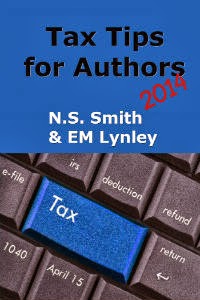
Tax Tips for Authors Bigger, longer, and more of what you really need.
EM Lynley is back sharing 2014 tax tips for authors.“If you make money from writing, you need this book!”
– Neil PlakcyStymied by Schedule C? Not sure if you should take the new home-office
deduction? Wondering just how many books you can deduct, how much of that trip to
RT, or even whether your writing is a business or a hobby according to IRS rules?The end of January means the 1099s are flying fast and furious
from publishers and distributors. Whether this is your first year filing a tax return
with writing income, or you’ve been doing it for years, chances are there’s something
you’re just not sure about and don’t know who to ask. You either guess and cross
your fingers, or decide not to deduct it, just in case.A few years ago I was in exactly the same boat. My first novel
was published five years, almost to the day (Feb 1, 2009) and I chewed a few fingernails
those first two years of filing my own returns. I didn’t want to pay anyone to do
it for me, so I actually enrolled in 90-hour Basic Tax Course at H&R Block so
I would have all the answers to do it myself.Now, from January to April I’m a tax preparer, and the rest of
the year I write (fiction and financial articles). I decided to meld my two halves
and write a book to help other writers get the answers you need to file your own
taxes, or at least keep better records to make the task easier for your accountant
or tax pro.Despite the name, Tax Tips for Authors packs much more than tips
to help you keep accurate records and your tax return. I have a full walkthrough
on Schedule C, show you how to calculate estimated quarterly payments, let you know
if you need to send 1099s to anyone else, and how to prove to the IRS you are running
a business rather than a hobby.If you self-publish, you have even more issues to think about.
If you haven’t gotten published yet, you may still have deductions coming to you.The book is filled with examples of every type of deduction and
various scenarios,The 3d edition (January 2014) is only available from Amazon or my website. (Smashwords and ARE and not yet the most
up-to-date version).A print edition is coming in mid-February. Here are the topics I cover:- General Legal Issues
- Hobby vs. Business
- Recordkeeping Basics
- Tackling the Schedule C
- Deducting Expenses on Schedule C
- Line-by-Line Walkthrough of Schedule C
- Home-office Deduction
- Self-employment Tax
- Quarterly Estimated Tax
- Self-published Authors
- Unpublished Authors
- FAQ
Contest
Ask a tax question and be entered to win a copy of Tax Tips for
Authors. (Please do not mention any personal financial information).DISCOUNT OFFER
Everyone here wins with a 10% off coupon for a future Tax Tips
class. We’ll cover everything in the book with extensive Q&A. Use coupon cone
RLF10FEB to register at my website: http://bit.ly/eml-taxclass.Stop by and like the Tax Tips for Authors page over on Facebook
for more tips and information. https://facebook.com/taxtipsforauthorsAuthor Social Media
Website: http://emlynley.comBlog: http://emlynley.com/blogLiveJournal: http://emlynley.livejournal.comTwitter: http://twitter.com/emlynley -
Chris Redding’s Author Rock Stars @chrisredding #RLFblog
Most people know about rock stars and have their favorites. I
have mine, but they are not in the music business. My rock stars are in the publishing
business. All of them are writers and for one reason or another they inspire me.Bob Mayer
He’s been traditionally published and self-published and runs
a publishing company that is more of a partnership with the author. He’s taken the
new frontier of publishing and made it his own. What does he preach? Content is
king. Write a good book. Then write the next good book. A former Green Beret, he
uses the skills he learned in special forces to make his company and his brand successful.
Read his blog, Write it Forward.JA Konrath
Another author who has been traditionally and self-published.
Of course he came to self-publishing with an audience already, but he often highlights
authors on his blog, The Newbie’s Guide to Publishing, who have been successful
at self-publishing without having his advantages. He also give back to the community.
He challenge his readers to write a book and publish it in 24 hours and he then
highlighted all those books on his blog. A write can also use on of his characters
to write a book and if he accepts it, he will edit and publish it at his expense
with both his name and the writer’s name. That is quite a boost for anyone willing
to do it.Victoria Strauss
Victoria
is a founding member of Writer Beware. As long as there have been aspiring writers,
there have scams. Writer Beware is there to inform about them. With more and more
authors going the self-publishing route, Writer Beware’s services are needed even
more. Unscrupulous companies being bought by legitimate publishers has led to a
blurring of the lines between good business and bad. Writer Beware is there to save
us all from our desperation to see our books in print.Melissa Foster
World Literary Café is website that all indie and traditionally
published authors can benefit from and it was started by Melissa. The site offers
paid advertising, some free advertising and, among other things, Tweet Teams, where
an author can help others tweet items in return for getting retweeted.Kayelle Allen
Founder of the Yahoo Group Marketing for Romance Writers, Kayelle
has expanded it to include a blog and a newsletter both of which offer opportunities
for writers to get exposure. The group also has lots of discussions about marketing
which is a topic for every author.If you as a writer are unfamiliar with any of these authors or
sites, you should acquaint yourself now. Your career will benefit from it.Thanks for having me today.CmrAvailable Books
Which Exit AngelShe’s a homicide detective and and angel who hasn’t earned her
wings. She’s sent down to investigate a murder at the Jersey Shore.
He’s a preacher questioning his faith. How are these two supposed to stop the impending
apocalypse? http://amzn.com/B00D1TPXZYA contemporary romance about a dog that brings two people together
who don’t want to be. She’s a vegetarian veterinarian who needs cash for a no-kill
shelter. He’s the heir to a hot dog fortune who must give away money before he gains
his inheritance. Sounds like a perfect match. It isn’t. http://amzn.com/B00EN33QNIAbout the Author
Chris Redding lives in New Jersey with her husband, two sons, one dog
and three rabbits. She graduated from Penn State
with a degree in journalism. When she isn’t writing, she works for her local hospital. Her books are filled with romance, suspense and thrills.Author Social Media
Website/blog http://chrisredddingauthor.blogspot.comTwitter http://twitter.com/chrisredding -
Writing Tips: Tickle Your Nose @VickiBatman #RLFblog #authortips
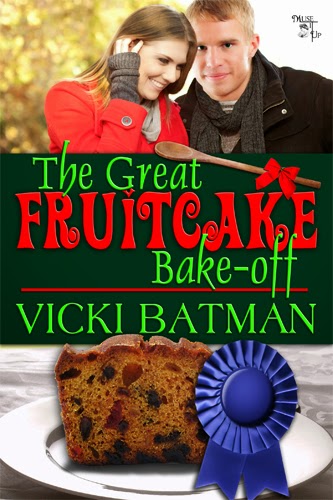
Great Fruitcake Bake Off Welcome Vicki
Batman back to Romance Lives Forever for a few writing tips.In church this past winter-almost-spring,
I sat behind a couple with granddaughters. The woman removed her fur scarf and set
it around a blonde cutie’s neck. The little one gathered the ends and rubbed them
across her face and pressed them to her nose.I wanted to do that. I wanted to buy
a fur collar and do what she’d done in the worst way. Just by watching her, I could
feel the softness brushing my mouth and the scent of Chanel No. 5.I like to buy vintage handbags, and
recently when I opened up one, a whiff of perfume teased my nose. Something old
and special. Remember when ladies put scent on their hankies and stowed it in their
bags? Remember peeking through Grandmother’s bath cupboard and seeing the cobalt
blue perfume bottle with a silver label inscribed Evening in Paris?My cat is twenty years old and doesn’t
venture outside much. But when she does on a bright summer day, she will park herself
in a corner outside my window. I’m so afraid I’ll forget and leave her there; so
after a while, I retrieve her. I always kiss the top of her head, feeling the velvet
of her fur against my mouth. And she smells fresh, as if she had absorbed sunshine.
Evening in Paris My malti-poos on the other hand have
silky hair which grows into riotous ringlets. When freshly laundered, they are incredibly
soft and the hint of apricot from the shampoo lingers. But after a couple of weeks,
they cease being adorable and become plain ol’ smelly dogs. Dirt-stained paws, gooky
eyes, sour scent.On Sunday, I took the dogs for a long
walk. As we turned the last block toward home, I noticed the green pecans on the
asphalt from the squirrels’ munching. Even lines from gnawing were visible on the
hull. The leaves from water-starved trees littered the pavement. Some shaped into
long beige cocoons. Others in various stages of disintegration. The tink-tink of
the doggies’ badges clinking as they marched onward by my side.When we write, are we taking the time to engage all our senses? Do we really
feel? Do we really smell? Do we hear?
Green Pecans What does our hero’s hair feel like?
Long is different from short. What does their skin feel like? Most men have hair
on their arms, legs and chest, and that intriguing line which runs below their waistband.
And don’t forget the scruffy beard and the adorable twinkle in their eye which makes
a gal want to twinkle right back and move right into the sexy dance… Whoa. Too
much romance writing. LOLWe can enhance our power of sense
by observation. Stop rushing through the day. Sit. Listen. Take a lengthy look.
A deep inhale and a cleansing exhale. What does the raindrop plopping on the tin
roof of a boathouse actually sound like? What kind of caw does a parrot make when
he flies overhead? What does gravel crunch like when we walk down a path?It’s hard to put sights, sounds, tastes,
and smells into words; yet when we get it right, we transport our readers further
into our story and giving them an intimate experience.Sometimes, we over rely on ourselves
to create the sights and sounds.When I posted a blog about watching
rain one morning, several people described the sound of rain. Lesson learned–ask
friends what they hear, see, taste, smell. Everyone’s experience is a little different
from our own, and maybe, just maybe, they might describe it better and the words
to take my work to the next level will come to me.How do you enhance your senses for
your writing? What do you recall from reading a good book where the author
brought out the senses?Buy Links
Museitup
Publishing http://museituppublishing.com/bookstore/index.php/coming-soon/the-great-fruitcake-bake-off-detail/About the Author
Like some of her characters, award-winning author, Vicki Batman has worked
a wide variety of jobs including lifeguard, ride attendant at an amusement park;
a hardware store, department store, book store, antique store clerk; administrative
assistant in an international real estate firm; and a general “do anything
gal” at a financial services firm–the list is endless.Writing for several years, she has
completed three manuscripts, written essays, and sold many short stories to True
Love, True Romance, True Confessions, Noble Romance Publishing, Long And Short Reviews,
and Museitup Publishing. She is a member of RWA and several writing groups and chapters.
In 2004, she joined DARA and has served in many capacities, including 2009 President.
DARA awarded her the Robin Teer Memorial Service Award in 2010. Most days begin with
her hands set to the keyboard and thinking “What if??“Find
Me HereWebsite: http://vickibatman.blogspot.comTwitter: https://twitter.com/VickiBatmanPinterest: http://pinterest.com/vickibatmanPlotting Princesses: http://plottingprincesses.blogspot.com


